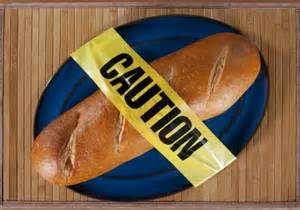What is happening to me? Now I am sensitive to foods! Finally, the body is trying to tell you what foods are harmful, the signal is getting louder, and you are hearing it! These symptoms are truly blessings in disguise.
As you may know, trying to figure out exactly which foods are bothering you can be maddening. Everyone has 1 or more food intolerances, and have had them since birth. Many of us don’t ever notice symptoms, others notice and patch the symptoms with medications. In recent years, with the surge of gluten intolerance, the idea of food intolerances is becoming more popular, so more and more are catching on.
The symptoms of eating foods you are intolerant to are as unique as we are. They can arise in minutes, hours or days. They can range from itching to hives, gas/bloating to fatigue, heartburn to abdominal pain, migraines to sinus congestion .
If you have been eating the foods you are intolerant to, this tells me that your GI tract may be unhealthy and not functioning properly on a cellular level. What are the OTHER underlying things that may cause unhealthy GI tract?
|
|
So what can I do about it?
The first thing I would do is your Food Intolerance Evaluation. Clearly, eating these foods cause an unhealthy GI tract in a major way.
What is food intolerance anyway?
Your body cannot digest the foods you are intolerant to properly. These partly digested food particles produce measurable levels of toxins in the GI tract. These toxins are “work” for the body to get rid of. They also lead to microscopic deterioration of the healthy GI lining. The undigested food particles basically “rot” in the intestines and interfere with normal functioning of the body. This can lead to chronic disease. These intolerant foods are a source of maldigestion, intestinal toxemia, dysbiosis, gastroparesis, leaky gut, and cause chronic irritation to body tissues.
Once this food or food combination is determined through the food evaluation and then eliminated, your body begins to heal. I can also help you heal the GI tract. In order to do this, certain nutrients are needed. Occasionally a GI cleanse may be needed first. Of course, we must first avoid, as much as possible, drugs that harm the GI tract, high stress, and we must eat a healthy diet of plenty of plant foods and no processed foods or sugars.
Here are some things that help the GI to heal.
L-glutamine – food for the GI tract cells
Probiotics – good bacteria that help the GI tract by producing food for GI tract cells, by keeping at bay foreign invaders that make us sick, and they help increase our immune system
N-acetyl-glucosamine or NAG – is from seafood and helps produce healthy mucus lining which protects the GI tract cells from damage
Fiber – absorbs toxins and pulls them out of the body, helps feed the good bacteria and keep them healthy, moves things along so stagnant conditions don’t ensue.
Slippery Elm – helps produce healthy mucus lining, an important part of the health of the GI tract
All patients benefit from complying with the food intolerance evaluation results. This is the first step, however. Some patients need deeper support and further testing such as the stool analysis.
How can I find out what my food intolerances are? Contact me anytime or call the office and set up an appointment for the FIT or food intolerance evaluation.
Remember for a free consult, contact the office at 480-607-0299 or email me directly. I’d love to talk to you! For coupons and the latest updates, check out our facebook page, follow our feed on twitter, and sign up for a monthly newsletter.


